Music in Media: From Films to Video Games

Music in media plays a pivotal role in shaping our experiences across various platforms, from the silver screen to the interactive realms of video games.
Quick Summary
Music in media profoundly shapes our emotional experiences, whether through the cinematic scores of films or the immersive soundtracks of video games. Iconic film scores elevate narratives and resonate with audiences, creating unforgettable moments, while video game music adapts dynamically to player actions, offering a uniquely interactive experience. As technology evolves, music's role continues to expand, promising exciting innovations such as AI-driven composition and immersive virtual reali
Whether we're watching a dramatic film unfold or playing an immersive video game, the music that accompanies these visual media forms has a profound impact on how we engage with the content.
Music simply creates an emotional connection that can turn an ordinary scene into a memorable moment.
In this post, we'll explore the evolution of music in media, diving deep into how it has become an indispensable tool for filmmakers and game developers alike.
We'll start by examining the role of music in films and then move on to its significant influence in video games.
The Role of Music in Films
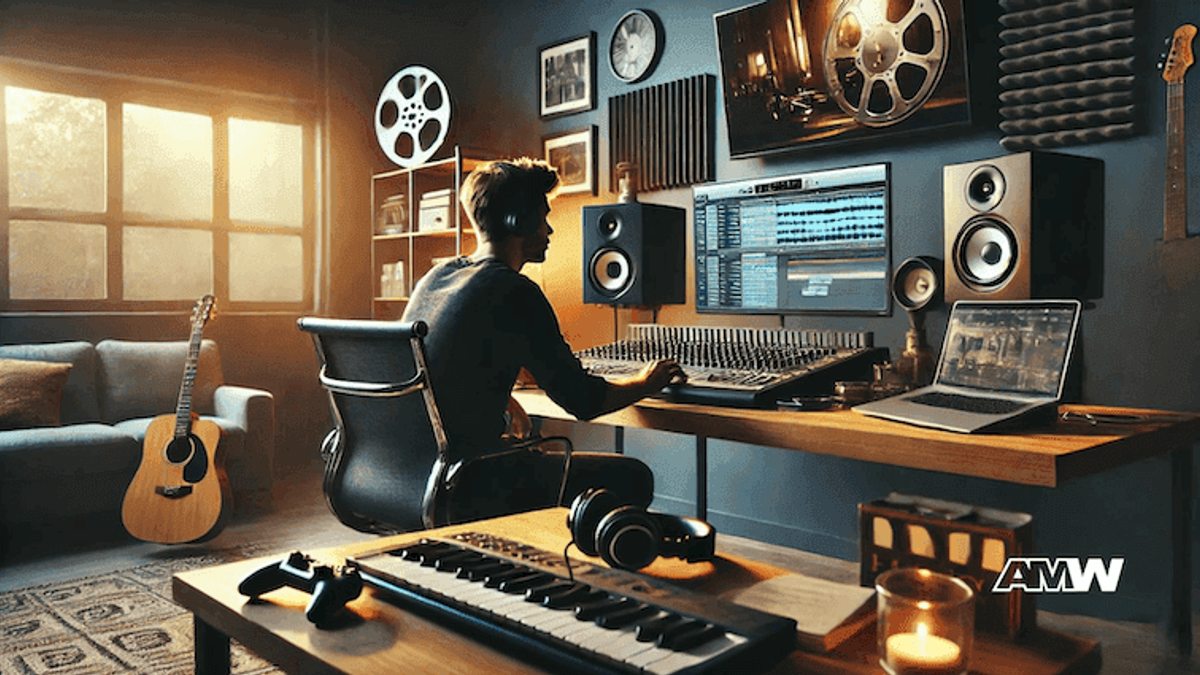
When we think of famous films, it's impossible not to hear the iconic melodies that have become synonymous with these cinematic masterpieces.
The soundtracks of these movies have been carefully crafted by composers to enhance the narrative, evoke emotion, and convey the essence of characters and scenes.
Hollywood music has evolved into an art form of its own, where directors and music supervisors collaborate closely to create a sound that not only complements but also elevates the story being told.
The orchestra, with its classical music roots, often serves as the backbone of many film scores, adding depth that resonates with audiences.
The use of music in films is not just about creating a background score. It's about crafting a soundtrack that becomes a character in its own right.
Think about the shower scene in Alfred Hitchcock's "Psycho." The sharp, screeching strings are as iconic as the images on the screen, driving the emotion of the moment and leaving a lasting impression on the audience. This is the power of music in media—it creates a movement, a style, and a melody that stands the test of time.
Filmmakers often use music to guide the audience's emotions, signaling when to feel tension, joy, or sadness.
For instance, the song "My Heart Will Go On" performed by singer Celine Dion became the anthem of the movie "Titanic," not just as a pop song but as a critical element of the film's identity.
This song is a perfect example of how popular music can cross over into the realm of film and become an integral part of the movie's success.
The Evolution of Music in Video Games
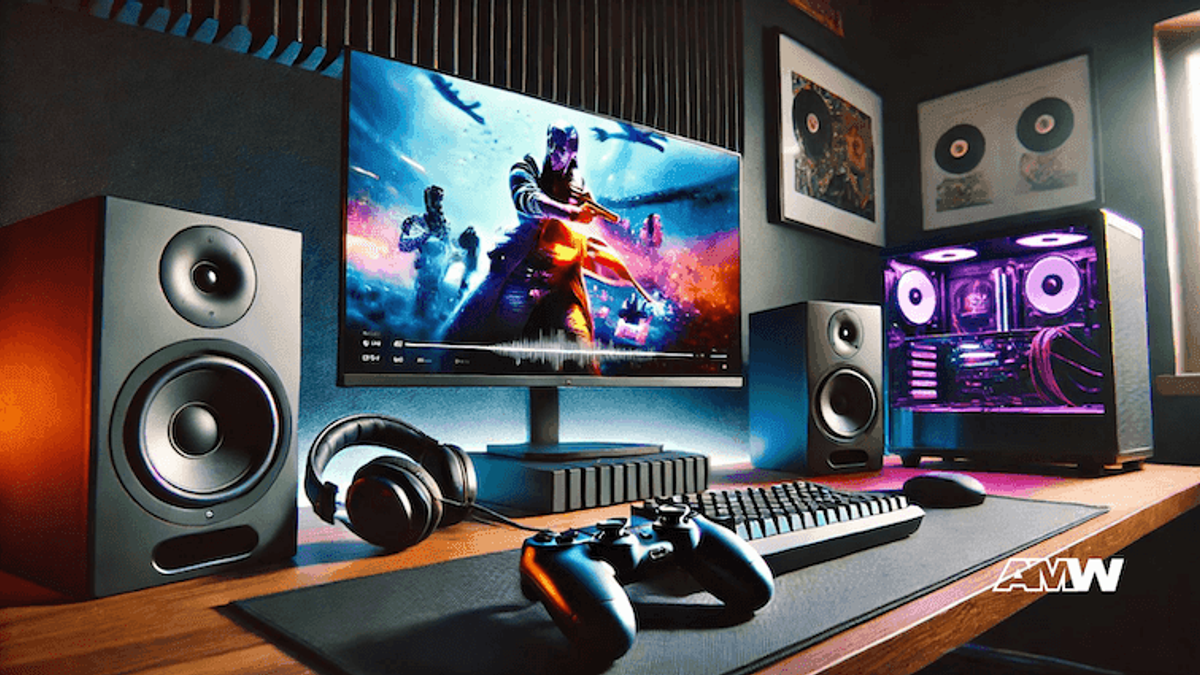
As films have relied on music to enhance storytelling, video games have similarly adopted music to create immersive worlds and interactive experiences.
Video game music has come a long way from the simple beeps and boops of early arcade games to the full orchestral scores that accompany today's blockbuster titles.
The evolution of video game music reflects the advancements in media technology and the growing sophistication of the video game industry.
In the early days of gaming, the music was limited by the hardware's capabilities.
These early video game themes were not just background noise; they were integral to the gaming experience, setting the tone for each level and helping to define the game's identity.
As technology advanced, so did the complexity and richness of video game music.
These soundtracks are often dynamic, changing in real-time based on the player's actions, creating a truly interactive experience.
This adaptability is something that films cannot achieve, making video games a unique form of media where music is not just a passive element but an active participant in the gameplay.
The work has even led to concerts where fans can listen to their favorite video game soundtracks performed live by orchestras, blurring the lines between classical music and popular music.
The influence of music in video games extends beyond just the gameplay. It has become a part of the gaming culture, with songs and themes from games being recognized by even those who do not play.
This crossover into the broader world of media demonstrates the power and reach of music in video games.
Comparing Music in Films and Video Games
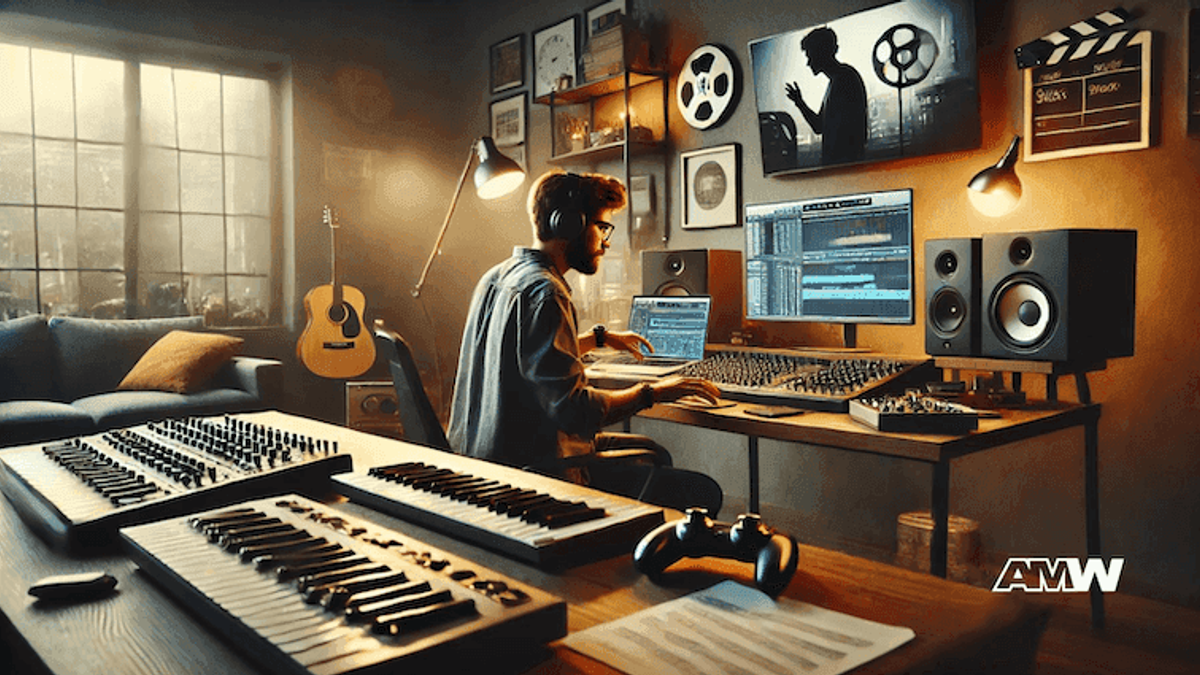
As we move from the film industry to the world of video games, it's fascinating to see how music adapts to serve different purposes across these media forms.
In films, music often serves as a guiding force for the audience, helping to steer their emotions and reactions in a controlled and deliberate manner.
Filmmakers use music to underscore the narrative, highlight key moments, and convey the emotional journey of the characters.
Hollywood music, with its rich orchestral scores and unforgettable themes, has a long history of shaping how we experience visual media.
In contrast, video game music operates in a more dynamic and interactive environment.
Unlike a film, where the soundtrack is set in stone, video game music is often designed to adapt to the player's actions and the game's unfolding events.
This interactive element makes music in video games uniquely different from that in films.
This adaptive approach to music creates a more immersive and personalized experience, where the music responds to the player's journey in real time.
This adaptability is something that film music traditionally doesn't offer. While a film's score is meticulously written to match the visuals, it follows a predetermined path that is the same for every viewer.
In a video game, however, the music must accommodate the unpredictability of the player's actions.
This is where composers for video games showcase their creative genius, crafting music that is not only beautiful but also flexible and responsive.
This flexibility is a hallmark of video game music and represents a significant evolution in how music is used in media.
Technological Influence on Music in Media

The impact of technology on music in media cannot be overstated. In the early days of films and video games, music was limited by the capabilities of the available technology.
Film scores were once recorded using minimal instrumentation, and video game music was confined to the basic tones of early game consoles. However, as technology has advanced, so too has the complexity and richness of music in both films and video games.
Modern films often feature full orchestras, elaborate recording sessions, and sophisticated sound design, creating a sound that is both expansive and emotionally resonant.
This can be true in Hollywood productions, where music supervisors work closely with composers to ensure that every note supports the story being told.
The results are often breathtaking, with music that not only complements the film but also stands alone as a work of art.
Similarly, in the video game industry, the leap from simple, looped tunes to fully orchestrated soundtracks has been remarkable. Today's video game composers have access to the same tools and resources as their counterparts in the film industry, allowing them to produce scores that rival those of any blockbuster film.
This blurring of lines between films and video games is a testament to how music in media is evolving and expanding its reach across various platforms.
Audience Impact and the Future of Music in Media
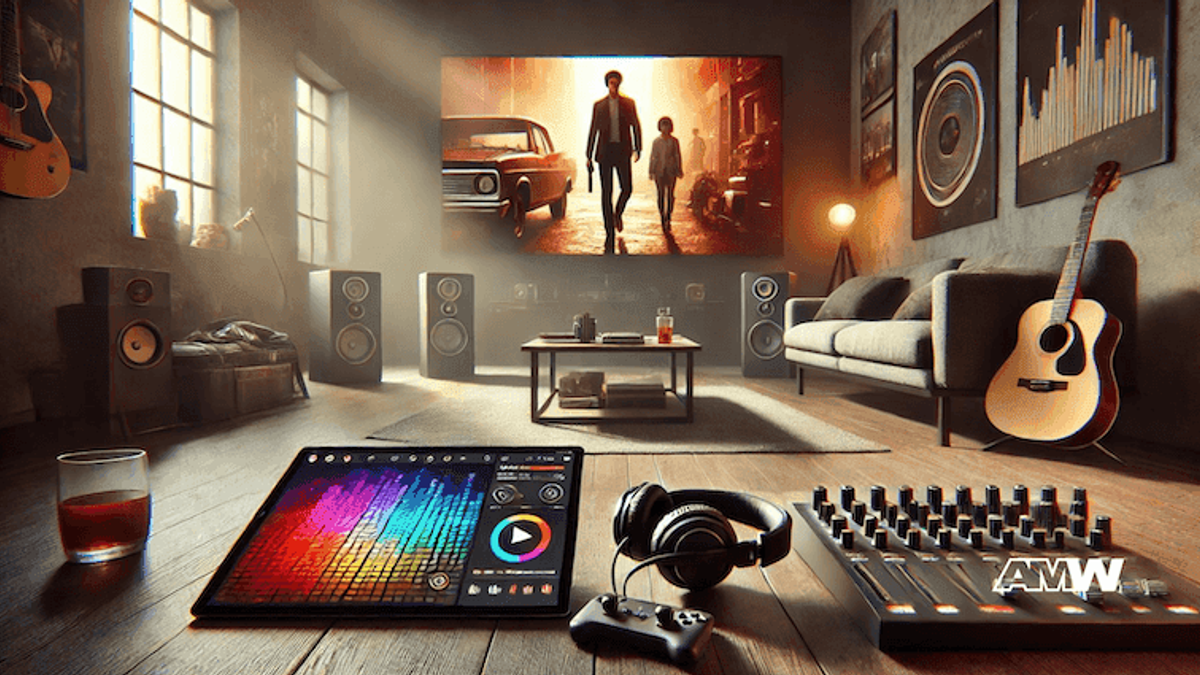
Whether it's a film or a video game, the impact of music on the audience is undeniable.
Music has the power to evoke deep emotions, create lasting memories, and even influence how we perceive the world around us. In films, music often acts as the emotional backbone, guiding the audience through the narrative and heightening the impact of key scenes.
A well-placed song or a memorable theme can elevate a film to legendary status, making it unforgettable in the minds of viewers.
In video games, the impact of music can be even more profound due to the interactive nature of the medium. As players navigate through complex worlds, solve puzzles, or engage in epic battles, the music becomes a part of their personal experience.
It's not just something they hear—it's something they live through, influencing their decisions and shaping their emotional journey. This is why music in video games is so powerful—it's not just a background element but a core part of the gaming experience.
Looking ahead, the future of music in media promises to be even more exciting. Virtual reality, for example, is a new frontier where music can play a critical role in creating fully immersive experiences. Imagine a VR concert where you're not just watching a performance but are surrounded by music that reacts to your every movement.
Or a television show where the soundtrack changes based on your emotional state. The possibilities are endless.
Moreover, the rise of AI in music composition could revolutionize how music is created for media. AI could enable composers and filmmakers to experiment with new styles and ideas, generating music that is tailored to specific scenes or even individual viewers.
This could lead to more personalized media experiences, where the music you hear is uniquely crafted for you.
In conclusion, music in media has come a long way from its humble beginnings. Whether it's in films, video games, or other forms of visual media, music continues to play a big role in shaping our experiences and emotions. The role of music in media will only grow, offering new and exciting ways for audiences to connect with the stories they love.
Cross-Media Influences and Collaboration
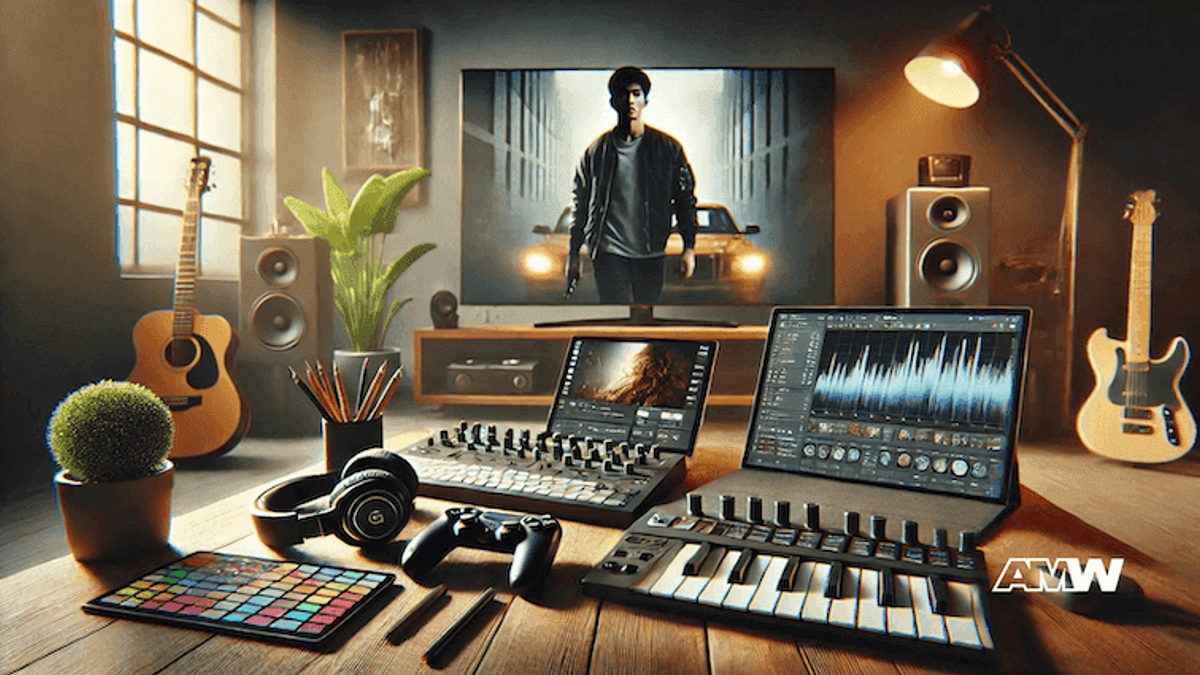
The interaction between music in films and video games is becoming increasingly pronounced as these media forms continue to evolve.
Composers, filmmakers, and game developers are finding more opportunities to collaborate, creating soundtracks that resonate across both industries. This mix of different musical styles leads to more diverse and boundary-pushing music experiences in media.
This kind of collaboration doesn't just benefit the creators—it also enhances the experience for audiences.
Similarly, when music from video games is used in films or television shows, it brings a fresh, modern sound that can appeal to younger, gaming-savvy audiences.
Another interesting trend is the increasing use of popular music in both films and video games. While classical music and orchestral scores still dominate these media, there is a growing trend toward incorporating songs by well-known artists to create a more contemporary soundtrack.
Music supervisors play a crucial role in this process, curating songs that align with the story and emotional tone of the film or game.
These soundtracks not only create an emotional connection but also help players feel more immersed in the game's world.
Potential Challenges and the Role of Music Supervisors

Despite the many opportunities and advancements, there are also challenges associated with music in media, particularly when it comes to originality and intellectual property.
As music becomes more integral to films and video games, the risk of composers inadvertently copying existing melodies or themes increases.
The vast amount of music that exists today makes it difficult to ensure that every new score or song is entirely original.
Moreover, as music crosses over between different media, issues of licensing and copyright become more complex.
Music supervisors are super important because they make sure the music used in movies, TV shows, and video games is all legit and meets all the legal requirements.
They also work closely with composers and filmmakers to maintain the integrity of the music while making sure it fits seamlessly with the visual and narrative elements of the media.
Another challenge is maintaining the balance between music and the story being told. While music has the power to evoke strong emotions and enhance the audience's experience, it can also overshadow the story if not used carefully.
Directors and music supervisors must ensure that the music supports the narrative rather than dominating it.
This requires a deep understanding of both the musical and visual elements of the production, as well as a collaborative approach that involves all key players in the creative process.
The Expanding Role of Music in Media

As we look to the future, it's clear that the role of music in media will continue to expand, offering new ways for audiences to engage with the stories and characters they love.
Whether through films, video games, television, or even emerging platforms like virtual reality, music will remain a central element of the media experience, creating connections that transcend the screen and resonate with audiences on a deep, emotional level.
One of the most exciting aspects of this expansion is the increasing accessibility of music creation tools. Today, artists and composers have access to tools that allow them to create high-quality music without the need for expensive recording studios or large orchestras.
This democratization of music creation is leading to a more diverse range of styles and sounds in media, as musicians from all backgrounds bring their unique perspectives to the world of music in media.
Moreover, as new media forms emerge, the possibilities for music are virtually limitless. In virtual reality and augmented reality experiences, music can play an even more immersive role, surrounding the audience and reacting to their movements in real-time.
This could lead to entirely new forms of storytelling, where music is not just a background element but an active participant in the story.
In conclusion, the journey of music in media is far from over. As technology continues to advance, music will undoubtedly play an even more integral role in how we experience media.
Music, from the touching film scores to the suspenseful video game soundtracks, will continue to influence the stories we cherish and enhance our lives in ways we are only beginning to realize.
Conclusion
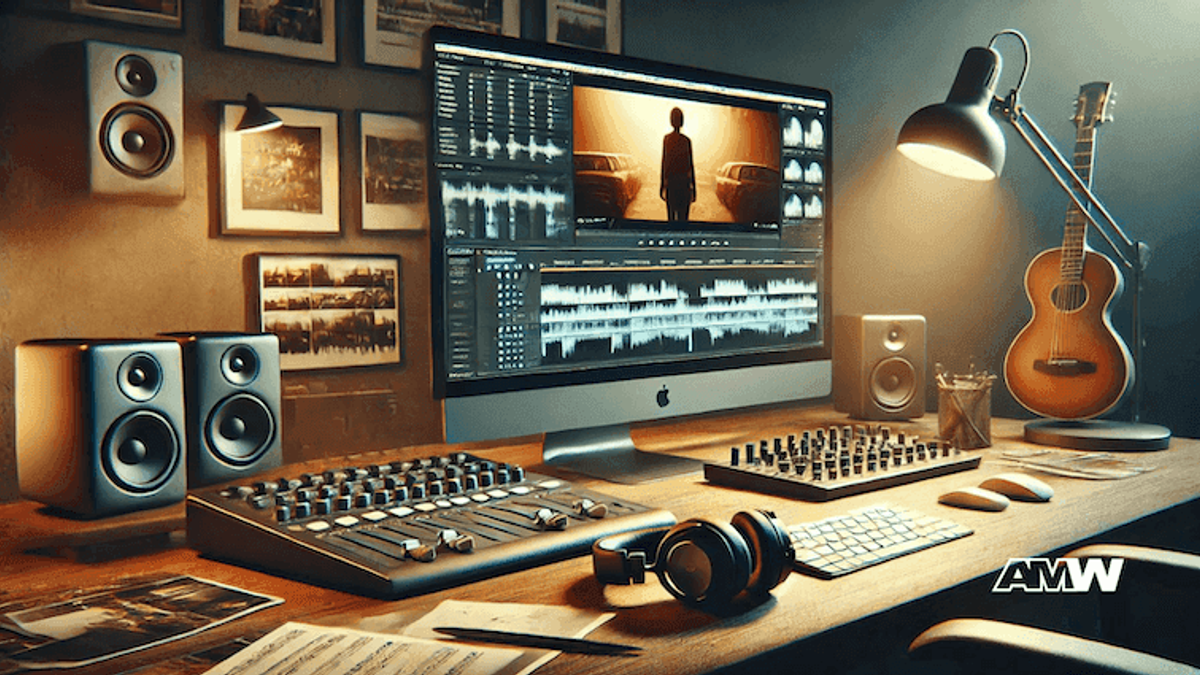
The journey of music in media has been one of continuous evolution, adapting to the changing landscapes of films, television, video games, and beyond.
From the orchestral scores that defined early Hollywood to the dynamic soundtracks of modern video games, music has always been at the core of how we experience and interact with visual media.
As we've explored, the role of music in media is multifaceted. It really makes the story more engaging, brings out strong emotions, and creates moments that stick with you even after the movie or game is over.
Looking ahead, the future of music in media promises to be even more exciting. With advancements in technology, the lines between different media forms will continue to blur, leading to new and innovative ways for music to influence and enhance our experiences.
The integration of AI, VR, and AR, along with the global exchange of musical styles and ideas, will push the boundaries of what music can achieve in media.
However, no matter how much the technology changes, the fundamental role of music—to connect with audiences on an emotional level, to tell stories, and to enrich the narrative—will remain the same.
Music will continue to be a bridge between the audience and the media, a medium that conveys the deepest emotions and stories in ways that words and images alone cannot.
In the end, music in media is more than just a background element—it's a vital part of our lives. It's what makes us laugh, cry, and feel in ways that only music can.
As we move forward into new frontiers of media, one thing is certain: music will always be there, guiding us, moving us, and helping us to create and experience the world in all its richness and depth.
FAQ

How does music in media affect the viewer's or player's experience?
Music significantly enhances emotional engagement, aids in storytelling, and creates memorable moments in both films and video games.
How has technology influenced the use of music in media?
Technological advancements have allowed for more complex sound design, interactive music systems in games, and high-quality orchestral recordings in both films and games.
What is the difference between music's role in films versus video games?
In films, music primarily supports a linear narrative, enhancing emotions and guiding the audience. In video games, music is often adaptive, reacting to the player's actions and contributing to an immersive experience.
What does the future hold for music in media?
The future may see more integration of AI in composition, greater crossover between film and game music, and new ways of experiencing music in immersive media formats like virtual reality.
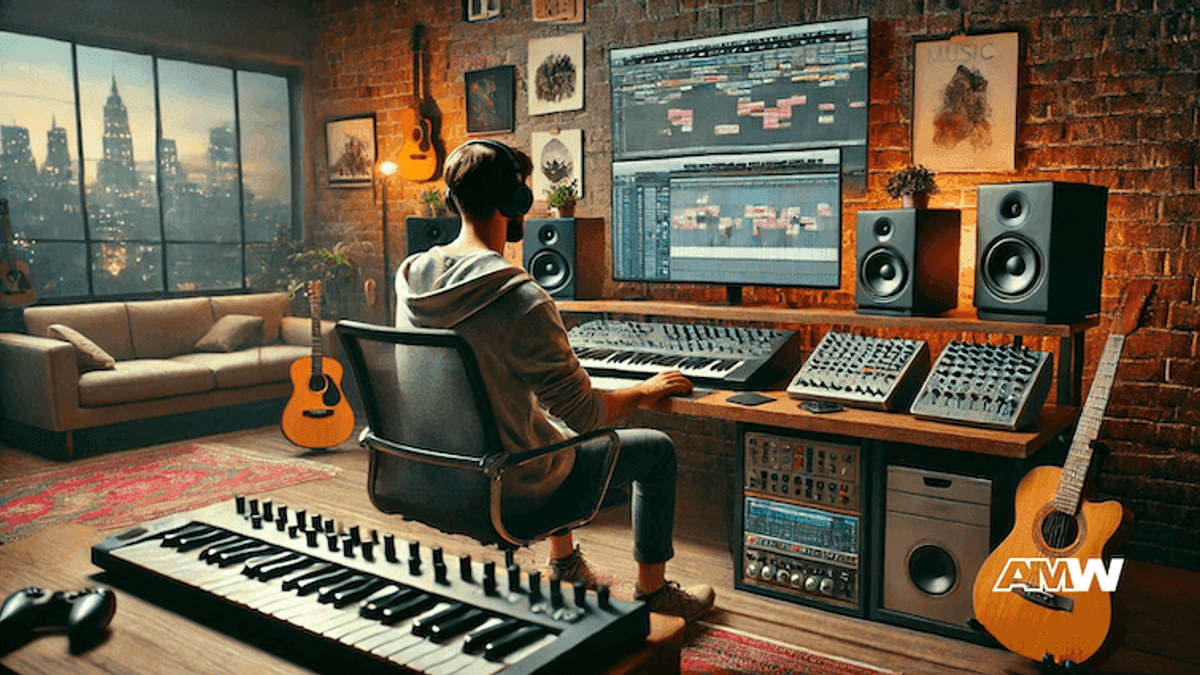
Related Resources
Calculators
Pricing Guides
Key Terms
The deliberate sequencing of release platforms (theatrical, streaming, VOD) to maximize revenue across all distribution channels.
Creative ProducerA producer focused on story, talent, and creative elements rather than primarily on financing and business aspects.
Stem DistributionReleasing individual component tracks of a song separately, enabling remixing, sync licensing, and fan creativity.
Music Sync AgentRepresentative who secures placement of music in film, TV, advertising, and games.
Social AudioShort-form music content created for social media platforms.
Related Articles

Artificial Intelligence in Music Is Changing How Artists Create and Perform
Artificial intelligence has revolutionized countless industries and music stands as one of its most fascinating frontiers. Musicians artists and producers now harness AI algorithms to compose melodies

Inside the Rise of AI as a Creative Partner in Music
The music industry has entered a revolutionary era where artificial intelligence serves as a creative partner rather than a replacement for human musicians. AI music co-production transforms how artis

How to Build Social Media Presence for Your Music Brand
So you want to start working out your social media? Get it in shape! Well, you’ve come to the right place. We tell you all about how to build social media presence for your music branding and keep it
